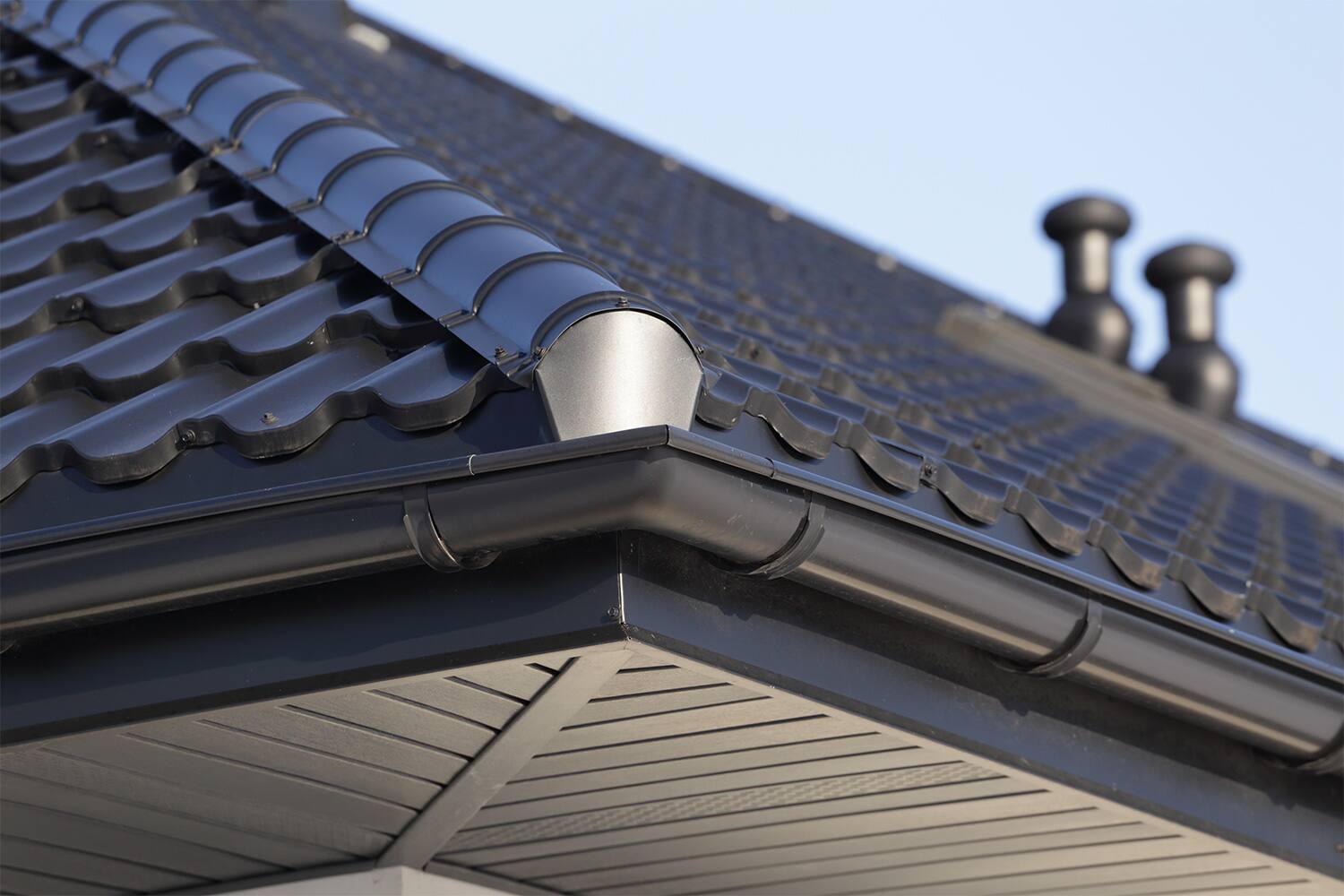

Articles
What Gauge Aluminum For Gutters
Modified: October 19, 2024
Find the right gauge of aluminum for your gutters. Read our informative articles on how to choose the best gauge for your gutter installation.
(Many of the links in this article redirect to a specific reviewed product. Your purchase of these products through affiliate links helps to generate commission for Storables.com, at no extra cost. Learn more)
Introduction
When it comes to maintaining and protecting your home, one area that often gets overlooked is the gutter system. While it may not be the most glamorous aspect of your home, gutters play a crucial role in directing rainwater away from your foundation, preventing costly damage and ensuring the structural integrity of your property.
A gutter is a narrow trough or channel that is installed along the edge of the roof to collect rainwater and divert it away from the house. It is designed to prevent water from pooling and causing damage to the foundation, walls, and landscaping.
The importance of gutters cannot be overstated. Without them, rainwater would simply cascade off the roof, saturating the soil around the foundation and causing it to shift, crack, or even collapse. This can lead to a host of problems, including basement leaks, mold growth, and structural issues that can be exceedingly expensive to fix.
When it comes to choosing the material for your gutters, there are several options available, including aluminum, steel, vinyl, and copper. Each material has its own advantages and disadvantages, but aluminum consistently emerges as one of the top choices for homeowners.
So, why should you consider aluminum gutters for your home? Well, aluminum gutters offer a great combination of strength, durability, affordability, and aesthetics. They are lightweight, easy to install, and resistant to rust and corrosion, making them an ideal choice for long-lasting performance and minimal maintenance.
However, when it comes to aluminum gutters, you may come across terms like “gauge” that may seem unfamiliar. In this article, we will delve deeper into the topic of aluminum gutter gauge and why it is important for choosing the right gutter system for your home.
Key Takeaways:
- Aluminum gutters are a popular choice for homeowners due to their durability, affordability, and low maintenance. Understanding the concept of gauges is crucial for selecting the right gutter system based on location and weather conditions.
- When choosing the appropriate gauge for aluminum gutters, factors such as climate, roof size, and budget should be considered. Thicker gauges are recommended for areas with heavy rainfall or severe weather, while milder climates may require thinner gauges.
Read more: What Paint To Use On Aluminum Gutters
What is a Gutter?
A gutter is an essential component of a home’s roofing system. It is a narrow channel or trough that is typically made of metal or plastic and is attached along the edge of the roofline. The primary function of a gutter is to collect rainwater that flows down from the roof and direct it away from the house.
When it rains, water runs down the slope of the roof and into the gutters. The gutters then channel the water away from the foundation and landscaping, preventing water damage and erosion. Without gutters, rainwater would simply drip off the roof, causing it to collect near the foundation and potentially seep into the basement or crawl space.
Gutters are typically installed at a slight angle to allow proper water flow towards downspouts, which are vertical pipes that carry the collected water to the ground or a drainage system. By directing the water away from the house, gutters help to protect the structural integrity of the home, prevent water damage to walls and siding, and preserve the landscaping around the property.
In addition to their functional benefits, gutters also play a role in enhancing the aesthetics of a home. They can be customized with different styles, colors, and materials to complement the architectural design and overall look of the house.
Overall, gutters are vital for maintaining a dry and structurally sound home. They are a key line of defense against water damage, preventing issues such as foundation cracks, basement flooding, and mold growth.
Now that we understand the importance of gutters, let’s explore the different materials used in gutter construction and why aluminum gutters are a popular choice among homeowners.
Importance of Gutters
Gutters are often overlooked, but they play a vital role in protecting your home from water damage. Let’s take a closer look at why gutters are important:
- Preventing Foundation Damage: One of the primary functions of gutters is to direct rainwater away from the foundation of your home. Without gutters, rainwater would pour off the roof and collect around the foundation, leading to soil erosion and potential foundation damage. This could result in costly repairs and compromise the structural integrity of your home.
- Preventing Basement Flooding: Gutters help prevent water from pooling around your home’s foundation, reducing the risk of basement flooding. Basements are prone to water intrusion, and excess moisture can lead to mold growth and damage to your belongings.
- Protecting Siding and Exterior Walls: Gutters are designed to collect rainwater that runs off the roof and channel it away from the walls of your home. By doing so, they prevent water stains, rot, and deterioration of siding and exterior walls, which can be costly to repair or replace.
- Preserving Landscaping: When rainwater is not properly directed away from your home, it can cause soil erosion and damage to the landscaping around your property. Gutters help to prevent erosion and protect your plants, flowers, and trees.
- Preventing Mold and Mildew: Excess moisture can create an environment conducive to mold and mildew growth. By effectively channeling rainwater away from your home, gutters help to minimize the risk of mold and mildew formation inside and outside your house.
- Preventing Damage to Fascia and Soffit: The fascia and soffit boards are located behind the gutters and provide protection to the eaves of your roof. Gutters that are clogged or overflowing can cause water to seep into these areas, leading to rot and damage over time.
- Preventing Soil Erosion: Without gutters, rainwater can cause soil erosion around the foundation, which can lead to uneven ground and potential structural issues.
Given the significant role that gutters play in safeguarding your home, it’s crucial to ensure they are properly maintained and functioning optimally. Regular cleaning, inspecting for damage, and promptly addressing any issues are essential for the longevity and effectiveness of your gutter system.
Now that we understand the importance of gutters, let’s explore the different materials available for gutters and why aluminum gutters are a popular choice.
Different Materials for Gutters
When it comes to selecting the right gutter material for your home, there are several options available. Each material has its own advantages and considerations. Let’s take a closer look at some of the most common materials used for gutters:
- Aluminum: Aluminum is one of the most popular choices for gutters due to its durability, lightweight nature, and affordability. It is resistant to rust and corrosion, making it a long-lasting option that requires minimal maintenance. Aluminum gutters can be easily customized to fit the dimensions of your home, and they are available in a wide range of colors to match your aesthetic preferences.
- Steel: Steel gutters are known for their strength and durability. They can withstand harsh weather conditions and potential damage from falling debris. However, steel is more prone to rust, especially if it is not properly coated or painted. Regular maintenance is required to prevent corrosion and prolong the life of steel gutters.
- Vinyl: Vinyl gutters are lightweight, affordable, and easy to install. They are a popular choice for DIY enthusiasts due to their simplicity. Vinyl gutters are resistant to rust and won’t chip or peel. However, they may become brittle over time and can easily crack in extremely cold temperatures. They are available in limited color options.
- Copper: Copper gutters are known for their beauty and elegance. They add a luxurious touch to a home’s exterior. Copper develops a unique patina over time, giving it a distinctive look. Copper gutters are highly durable and weather-resistant. However, they are more expensive than other materials and require professional installation and regular maintenance to preserve their appearance.
- Zinc: Zinc gutters are durable, long-lasting, and resistant to corrosion. They have a distinct look and can develop a blue-gray patina over time. Zinc gutters are eco-friendly and can be recycled. However, they are more expensive than other materials and may require professional installation.
Each material has its own set of pros and cons, and the right choice for you will depend on factors such as your budget, home style, climate, and personal preferences. Aluminum gutters, with their combination of strength, durability, affordability, and customization options, continue to be a popular choice for homeowners.
Now that we have explored the different materials for gutters, let’s dive deeper into why aluminum gutters are a top choice and explore the concept of aluminum gutter gauges.
Why Aluminum Gutters?
When it comes to choosing the right gutters for your home, aluminum is a material that stands out for several reasons. Let’s explore why aluminum gutters are a popular choice among homeowners:
- Durability: Aluminum gutters are known for their exceptional durability. They can withstand harsh weather conditions, including heavy rain, snow, and strong winds. Unlike materials like steel, aluminum does not rust, ensuring that your gutters remain in good condition for years to come.
- Lightweight: Aluminum is a lightweight material, making it easier to handle during installation. This can be an advantage, especially for DIY enthusiasts or contractors who need to maneuver the gutters around the roofline.
- Low Maintenance: Aluminum gutters require minimal maintenance. Unlike materials like wood or copper that may need periodic painting or treatments, aluminum gutters only need occasional cleaning to remove debris and leaves. This makes them a convenient choice for homeowners who are looking for a low-maintenance gutter system.
- Resistance to Corrosion: Aluminum is naturally resistant to rust and corrosion. Unlike steel gutters that may require protective coatings or regular maintenance to prevent rust, aluminum gutters can withstand moisture without deteriorating. This ensures the longevity of your gutter system and helps to avoid costly repairs or replacements.
- Affordability: Aluminum gutters are a cost-effective option for homeowners. They are generally more affordable compared to materials like copper or zinc, making it a budget-friendly choice for those who want a durable and reliable gutter system without breaking the bank.
- Customization Options: Aluminum gutters are available in a wide range of colors, allowing homeowners to choose a gutter system that complements the aesthetics of their home. Whether you prefer a traditional white gutter or a custom color to match your exterior, aluminum gutters can be customized to suit your style.
- Ease of Installation: Aluminum gutters are relatively easy to install, especially for experienced contractors or DIY enthusiasts. Their lightweight nature, coupled with the availability of pre-cut sections, makes the installation process more manageable.
- Compatibility: Aluminum gutters are compatible with various accessories, such as gutter guards and downspouts. This allows homeowners to enhance the functionality and efficiency of their gutter system by incorporating additional features as needed.
With its combination of durability, affordability, low maintenance, and customization options, it is no wonder that aluminum gutters continue to be a popular choice for homeowners seeking a reliable and efficient gutter system.
Now that we understand the benefits of aluminum gutters, let’s explore the concept of gauge in relation to aluminum gutters and why it is important to consider when choosing the right gutter system for your home.
For residential gutters, a recommended gauge for aluminum is 0.027 inches. This thickness provides durability and strength while still being lightweight and easy to work with during installation.
Read more: What Is Better Vinyl Or Aluminum Gutters?
Understanding Gauges in Aluminum Gutters
When shopping for aluminum gutters, you may come across the term “gauge.” Gauge refers to the thickness or weight of the gutter material. The gauge measurement is an essential factor to consider when choosing the right gutter system for your home.
Gauges for aluminum gutters typically range from 0.019 inches to 0.032 inches, with the lower numbers indicating thicker and more durable gutters. While it may seem counterintuitive, the lower gauge number actually represents a thicker gauge and a stronger gutter.
The choice of gauge depends on various factors, including the climate of your location, the size of your roof, and the amount of rainfall your area receives. Thicker gutters, such as those with a lower gauge number, are more suitable for areas with heavy rainfall or areas prone to severe weather conditions like high winds or ice and snow buildup.
However, it’s essential to strike a balance between durability and cost. Thicker gauges provide increased strength and durability but come at a higher cost. Thinner gauges are more affordable, but they may not withstand extreme weather conditions as well as thicker ones.
Take into consideration the following factors when selecting the right gauge for your aluminum gutters:
- Climate: If you live in an area with frequent rainfall or harsh weather conditions, choosing a thicker gauge for your gutters is recommended to ensure they can withstand the elements.
- Roof Size: The size of your roof also plays a role in determining the appropriate gauge for your gutters. Larger roofs tend to collect more rainwater, so thicker gutters may be necessary to handle the increased water flow.
- Budget: Consider your budget when choosing the gauge for your gutters. Thicker gauges generally come at a higher cost, so it’s important to find a balance between durability and affordability.
- Consult a Professional: If you’re unsure about the right gauge for your aluminum gutters, it’s always recommended to consult with a professional gutter installer. They can assess your specific needs and provide guidance on the appropriate gauge for your home.
To ensure the longevity and effectiveness of your gutter system, it’s crucial to choose the right gauge that can withstand the unique conditions of your environment. By investing in the appropriate gauge for your aluminum gutters, you can ensure optimal performance and protection for your home.
Now that we understand the concept of gauges in aluminum gutters, let’s explore the recommended gauges for different locations and factors to consider in making the right choice.
Factors to Consider When Choosing the Right Gauge
Choosing the right gauge for your aluminum gutters is crucial to ensure they can withstand the elements and provide effective protection for your home. Here are some factors to consider when selecting the right gauge:
- Climate: Consider the climate of your location. If you live in an area with heavy rainfall, strong winds, or extreme weather conditions, opting for a thicker gauge is advisable. Thicker gauges offer greater strength and durability, making them more suitable for areas prone to severe weather.
- Roof Size: The size of your roof plays a role in determining the appropriate gauge for your gutters. Larger roofs collect more rainwater, so thicker gutters are needed to handle the increased water flow. It’s important to choose a gauge that can effectively manage the volume of water from your roof to prevent overflowing or other drainage issues.
- Budget: Consider your budget when selecting the gauge for your gutters. Thicker gauges generally come at a higher cost due to the increased amount of material used. Evaluate your budget and weigh the benefits of thicker gutters against the associated costs to find the right balance between durability and affordability.
- Home Style: The architectural style of your home can also influence the gauge choice. Thicker gauges may be more suitable for homes with complex rooflines, multiple levels, or elaborate architectural features. This ensures that the gutters can handle the structural demands and provide adequate protection for your home.
- Consult a Professional: If you’re unsure about the appropriate gauge for your aluminum gutters, it’s always recommended to consult with a professional gutter installer. They have experience in assessing various factors and can provide expert advice on the right gauge for your specific home and location.
It’s important to find a balance between durability and cost when choosing the gauge for your aluminum gutters. Thicker gauges offer greater strength and longevity but come at a higher price point. Thinner gauges are more affordable but may not provide the same level of durability in harsh weather conditions. Assess your specific needs, consider the factors mentioned above, and consult with professionals to make an informed decision.
Remember, the goal is to select a gauge that can effectively handle the water flow from your roof, provide adequate protection for your home, and fit within your budget. By considering these factors, you can choose the right gauge for your aluminum gutters and ensure a reliable and long-lasting gutter system.
Now that we’ve discussed the factors to consider when choosing the right gauge, let’s explore the recommended gauges for different locations to help you make an informed decision.
Recommended Gauges for Different Locations
When it comes to choosing the right gauge for your aluminum gutters, the location of your home plays a significant role. Different climates and weather conditions require different levels of durability and strength. Here are some recommended gauges for different locations:
- Mild Climate: If you live in an area with a mild climate and relatively low rainfall, a gauge between 0.019 and 0.027 inches is generally sufficient for your aluminum gutters. These gauges offer adequate strength and durability for moderate weather conditions.
- Moderate Climate: For areas with moderate rainfall and typical weather patterns, a gauge between 0.027 and 0.032 inches is recommended. This range provides increased strength and durability to handle average rainwater volume and occasional strong winds.
- Heavy Rainfall: If you reside in an area with heavy rainfall or frequent downpours, opting for a thicker gauge between 0.032 and 0.040 inches is advisable. These gauges offer enhanced strength and can handle higher water volumes, reducing the risk of overflow and potential water damage.
- High Wind or Snowfall: In regions prone to high winds, storms, or heavy snowfall, considering a thicker gauge is crucial. Gauge options between 0.040 and 0.050 inches provide the necessary strength to withstand severe weather conditions and the weight of accumulated snow and ice.
It’s important to note that these recommendations are general guidelines, and it’s always recommended to consult with a professional gutter installer who understands the specific weather patterns and requirements of your location. They can assess the unique factors of your area, such as wind speeds, average rainfall, and snowfall amounts, to provide tailored recommendations for the gauge of your aluminum gutters.
By choosing the appropriate gauge for your location, you can ensure that your gutters are strong enough to handle the weather conditions and provide optimal protection for your home. Remember to consider factors such as climate, average rainfall, wind speed, and the potential for snowfall when making the decision.
Now that we’ve explored the recommended gauges for different locations, let’s conclude our discussion on understanding aluminum gutters and the importance of gauge selection.
Conclusion
In conclusion, gutters play a crucial role in protecting your home from water damage by directing rainwater away from the foundation, walls, and landscaping. When it comes to choosing the right material for your gutters, aluminum emerges as a top choice among homeowners due to its durability, affordability, low maintenance, and customization options.
Understanding the concept of gauges in aluminum gutters is essential for selecting the right gutter system for your home. Gauges refer to the thickness or weight of the gutter material, with lower gauge numbers indicating thicker and stronger gutters. Factors like climate, roof size, budget, and home style should be considered when selecting the appropriate gauge.
In milder climates, gauges between 0.019 and 0.027 inches are recommended, while areas with moderate rainfall may require gauges between 0.027 and 0.032 inches. For regions with heavy rainfall or high winds, opting for thicker gauges between 0.032 and 0.040 inches is advised. And in areas with severe weather conditions, gauges ranging from 0.040 to 0.050 inches can provide the necessary strength.
Ultimately, the right gauge for your aluminum gutters will depend on your specific needs, location, and budget. It’s always a good idea to consult with a professional gutter installer to ensure you make an informed decision based on the unique factors of your home.
Remember, gutters are a crucial investment that protects your home’s foundation, prevents basement flooding, preserves siding and exterior walls, and maintains your landscaping. By choosing aluminum gutters with the appropriate gauge, you can enjoy a durable, low-maintenance gutter system that effectively directs rainwater away from your home for years to come.
So, don’t overlook the importance of gutters and their impact on your home’s overall well-being. Consider aluminum gutters and the appropriate gauge for your location, and enjoy the peace of mind that comes with a reliable and effective gutter system.
Frequently Asked Questions about What Gauge Aluminum For Gutters
Was this page helpful?
At Storables.com, we guarantee accurate and reliable information. Our content, validated by Expert Board Contributors, is crafted following stringent Editorial Policies. We're committed to providing you with well-researched, expert-backed insights for all your informational needs.

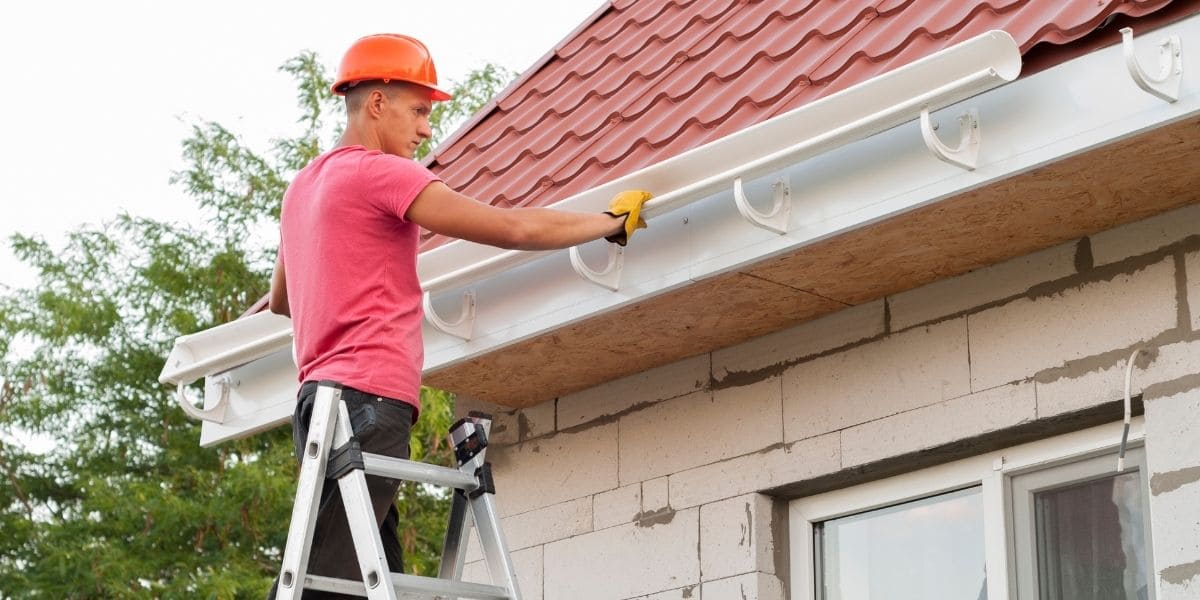



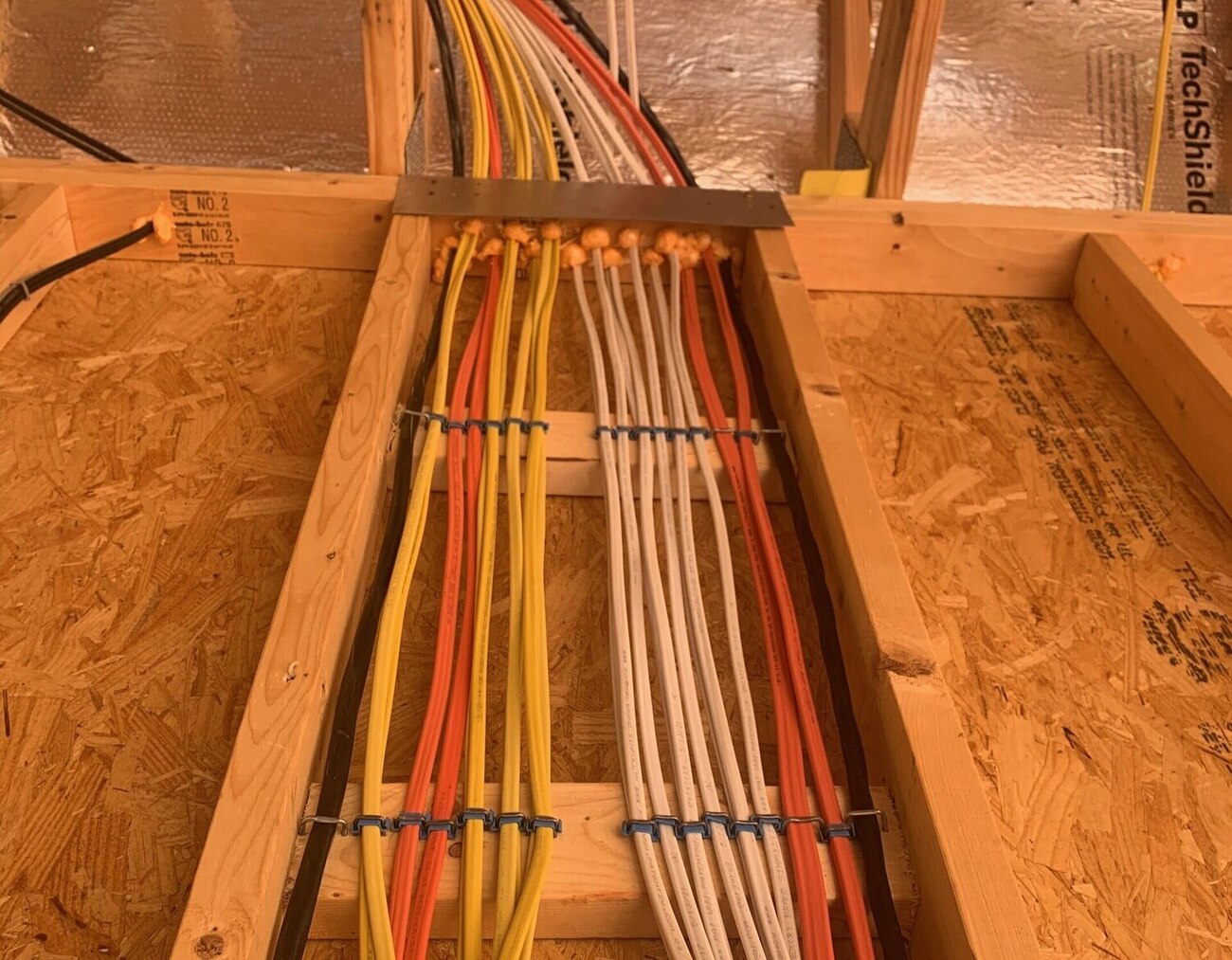

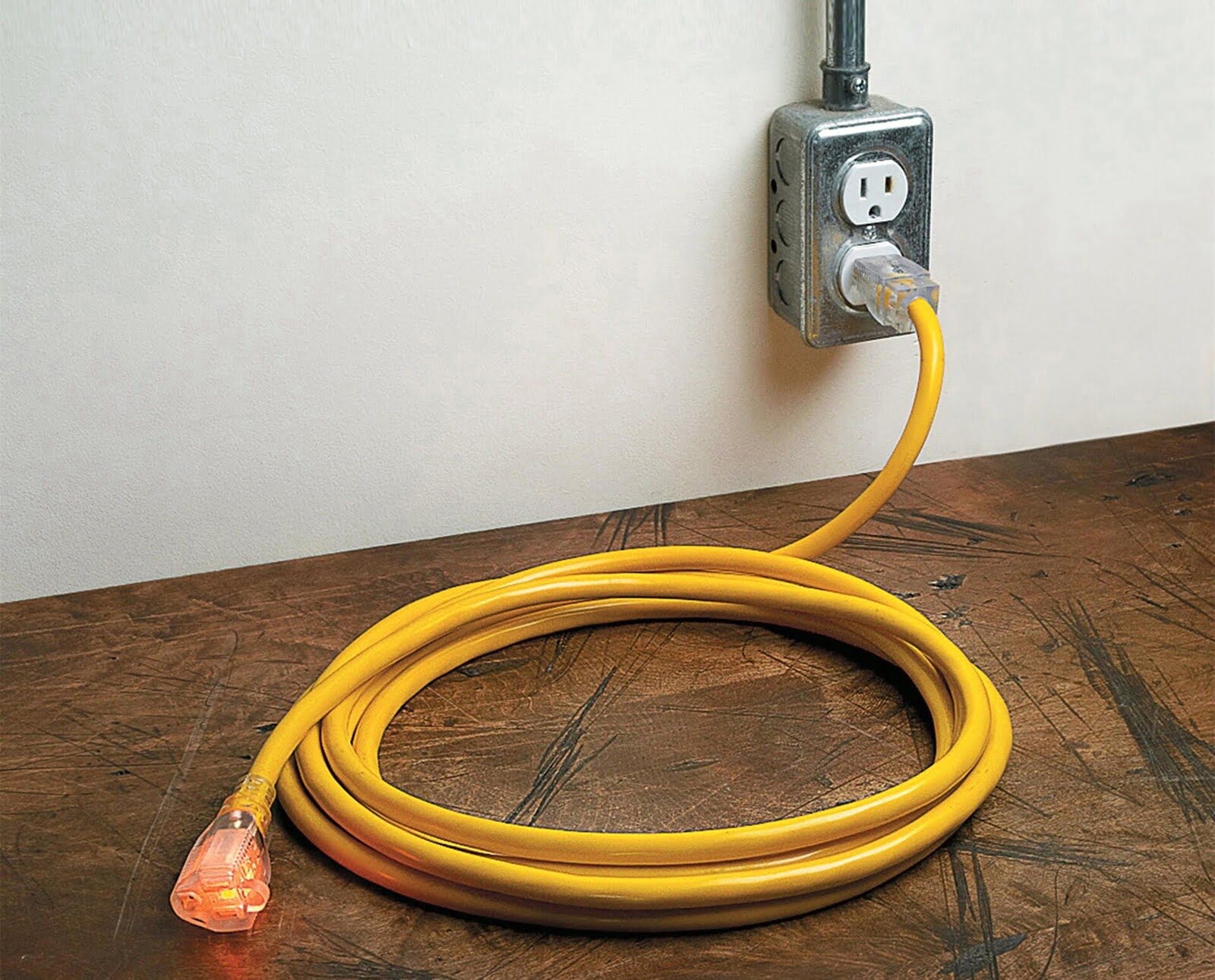
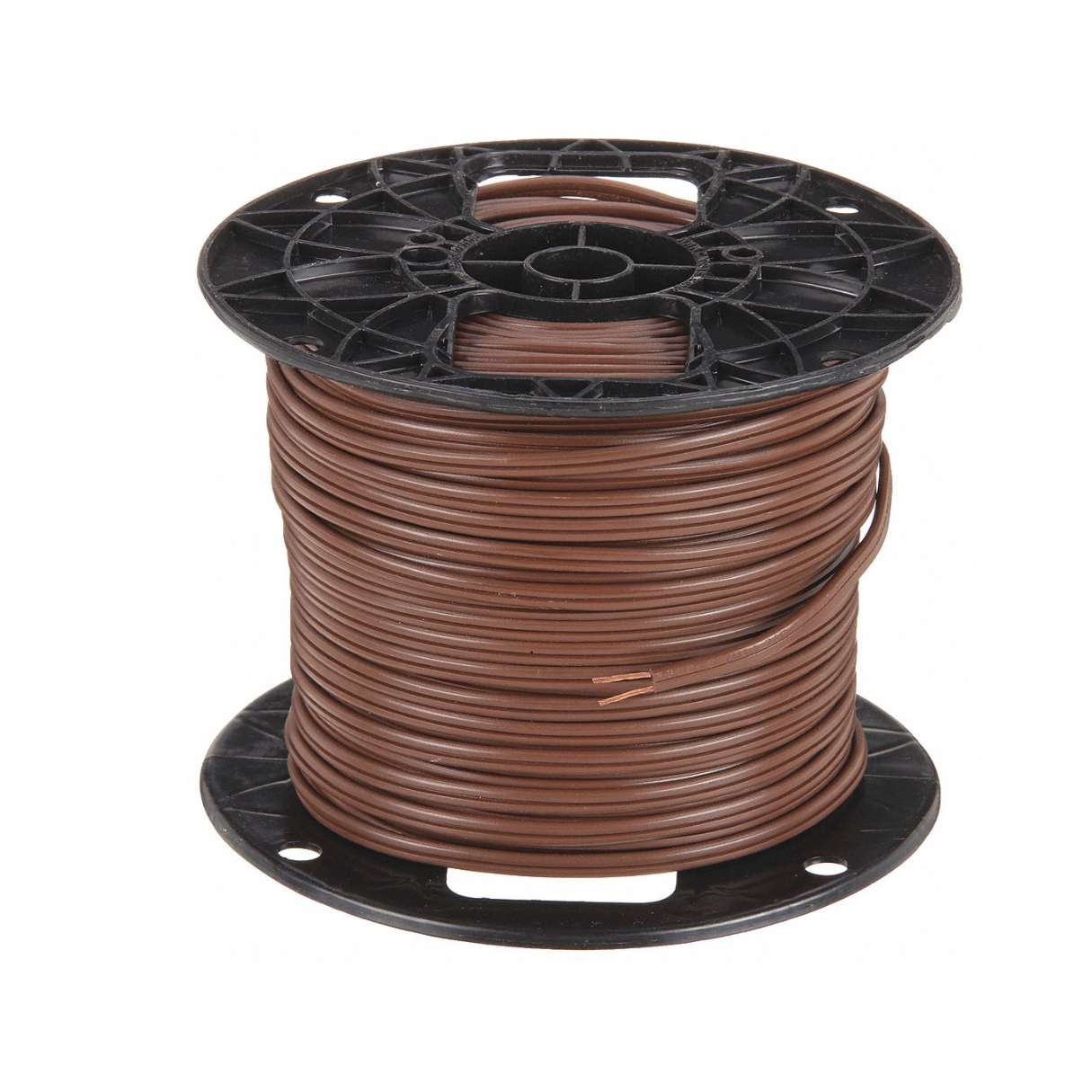
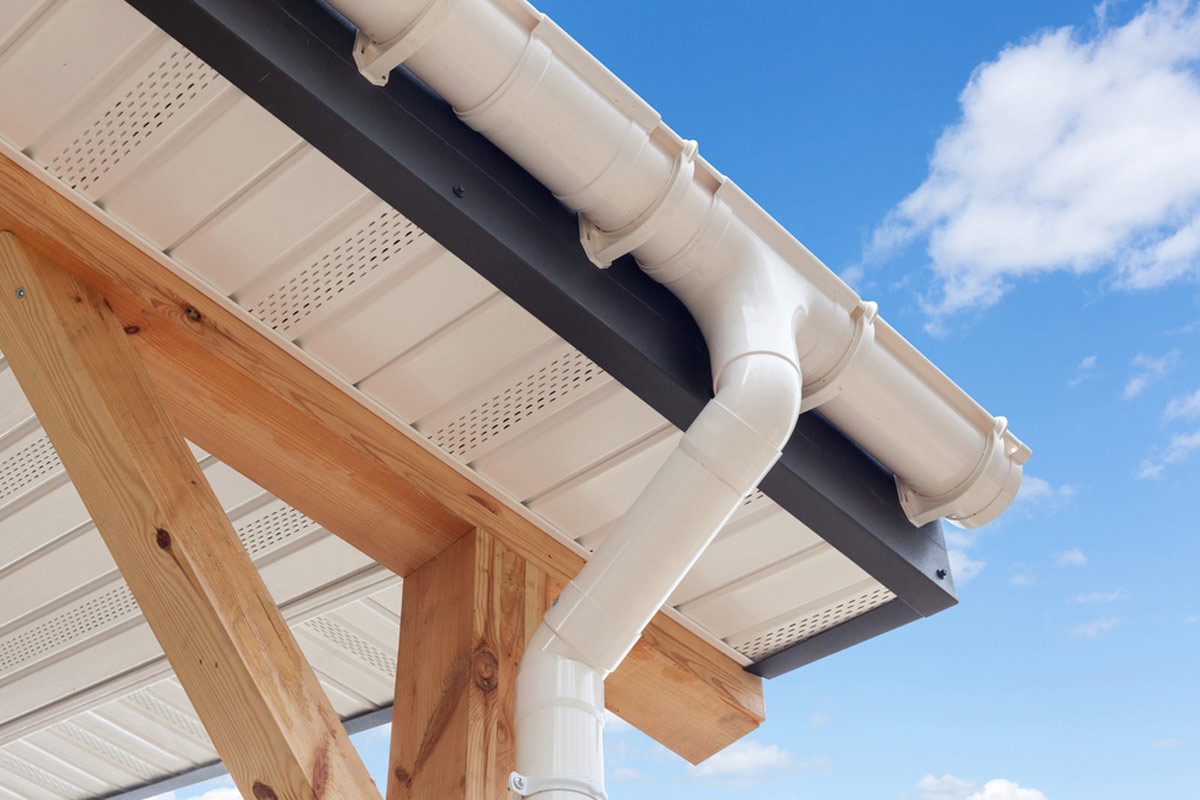
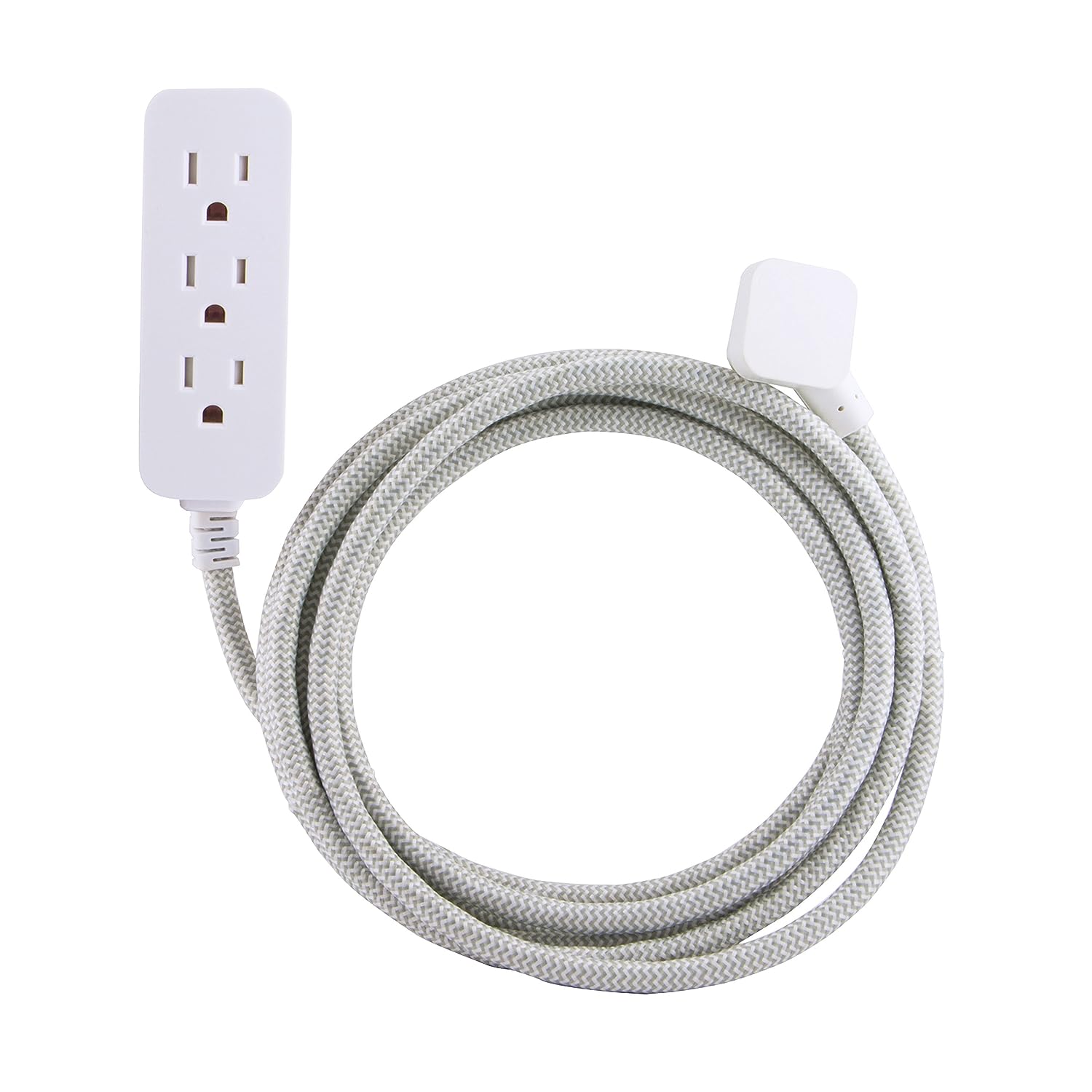
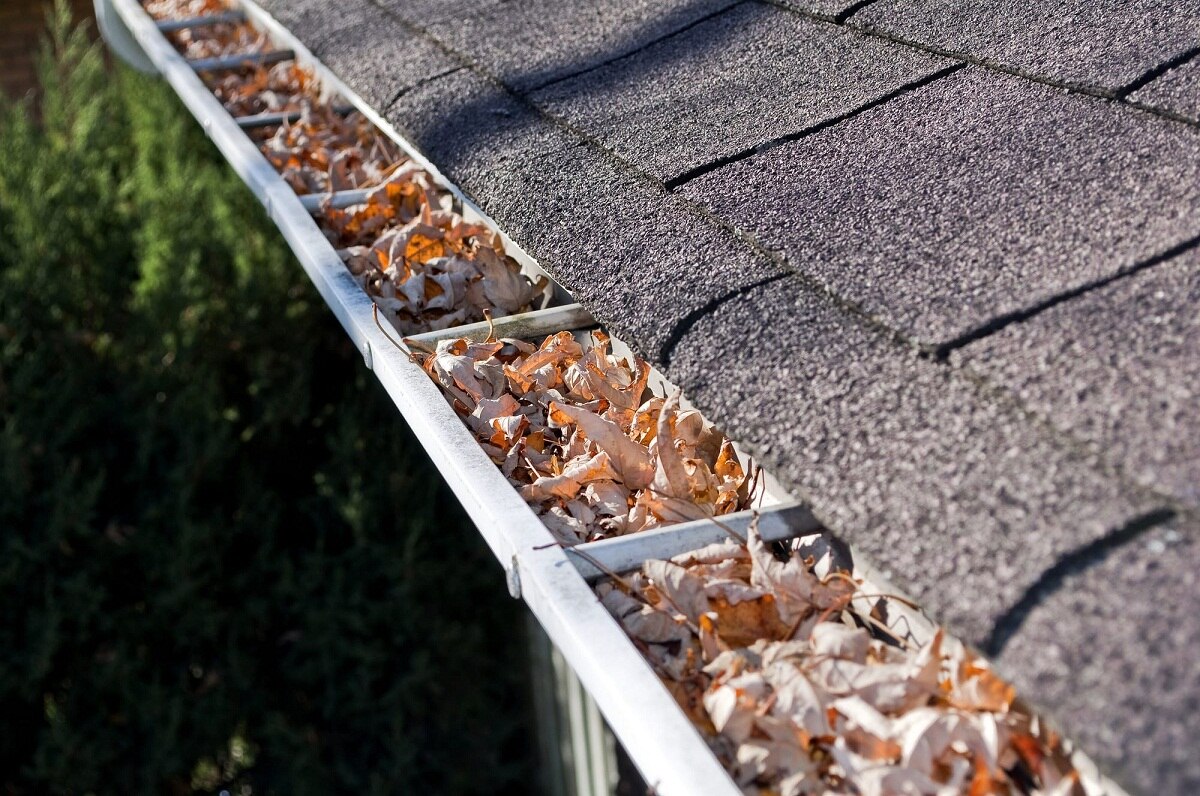
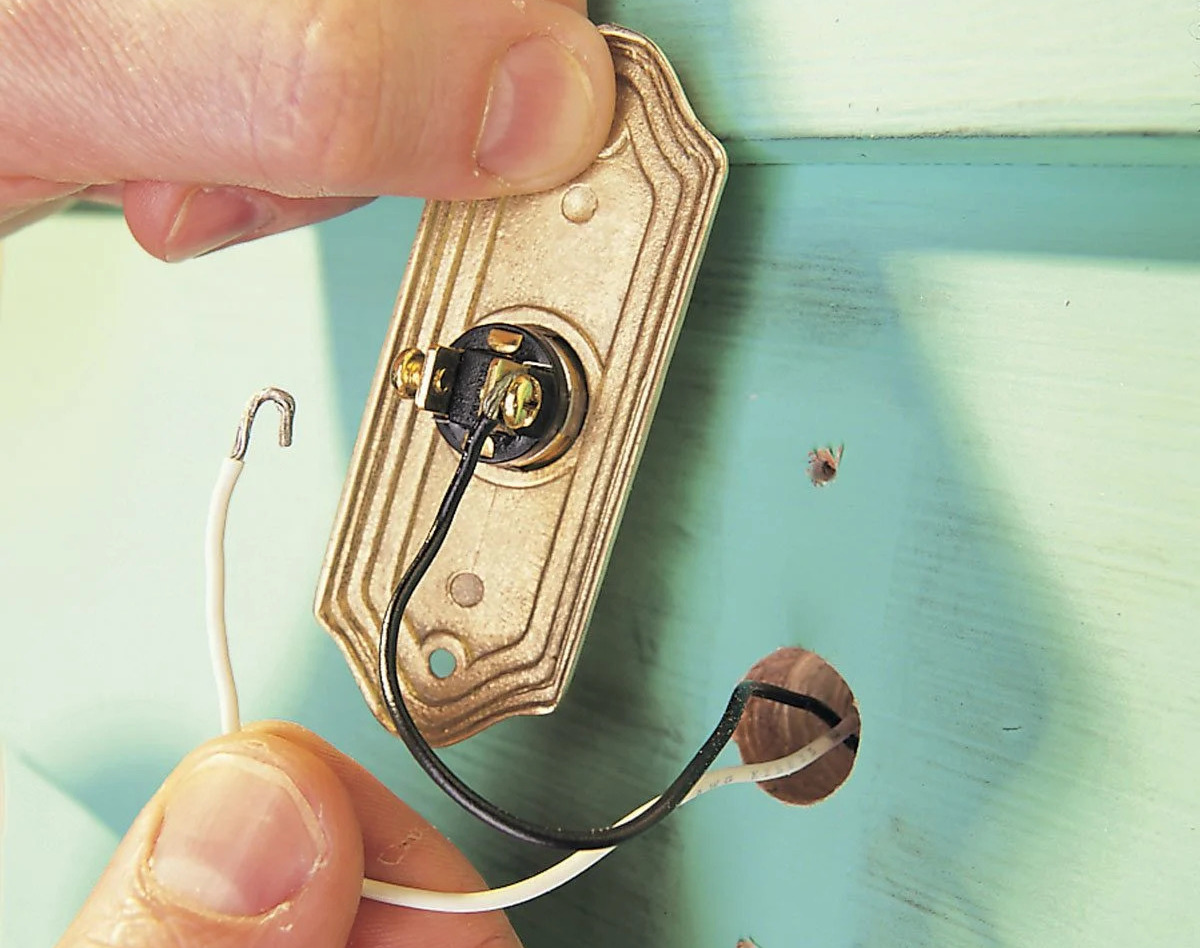
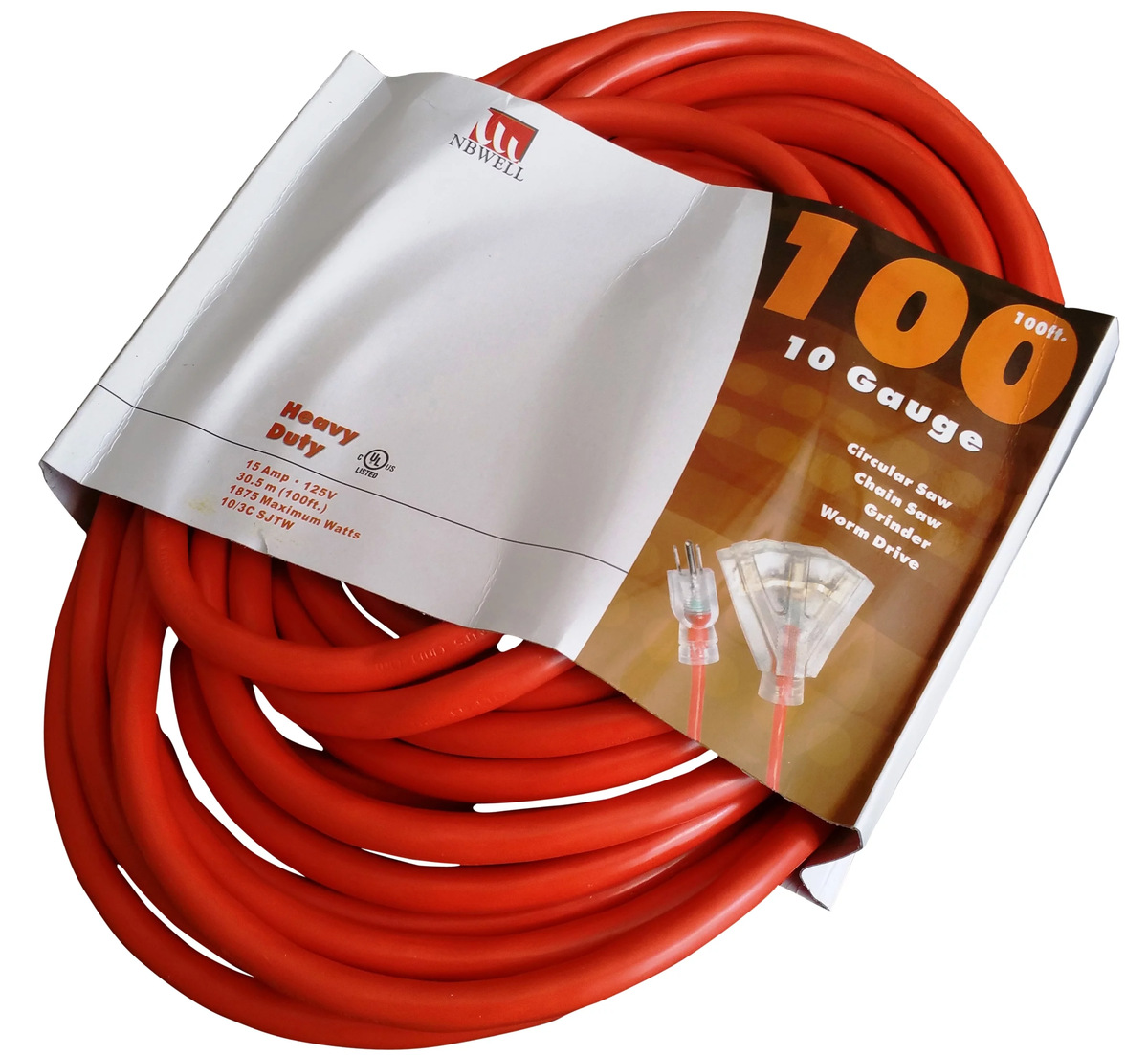

0 thoughts on “What Gauge Aluminum For Gutters”